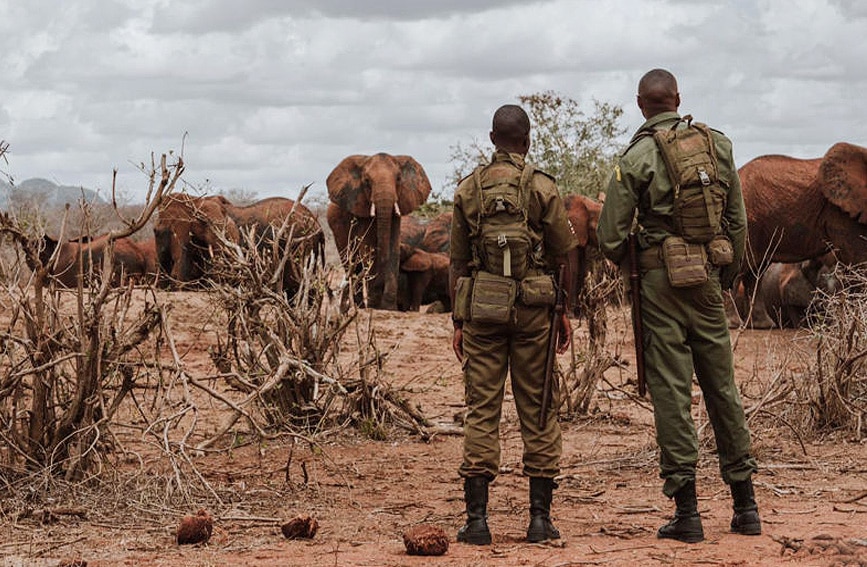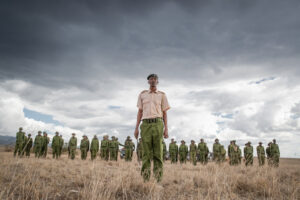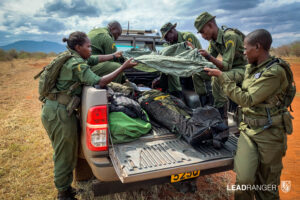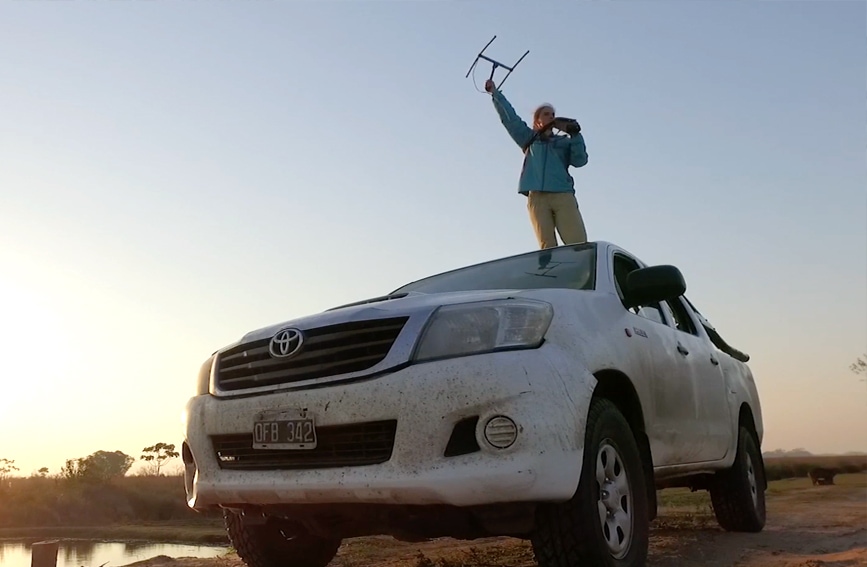The Fine Line between Wildlife and Communities

Three East African Rangers have been killed by elephants in recent weeks. These three incidents were unrelated but they highlight the complex roles rangers have working with wildlife and local communities.
In one case, a team of rangers responded to an emergency call from the Lapono community to scare off a group of elephants. The animals were marauding the village outside Murchison Falls National Park, Uganda. The rangers were firing shots in the air trying to herd the elephants back toward the park when one turned to charge. Sergeant Guma fell while trying to evade the elephant and was trampled. He died of his injuries while being evacuated to hospital. Sergeant Guma was married with four children.
The elephants were not killed in retaliation. Protecting elephants often means policing the animals to discourage patterns of behaviour. Eating village crops can easily become a habit; elephants often prefer the food many smallholders grow, such as corn.
Interventions by rangers minimise the impact on local communities who will otherwise readily take matters into their own hands.
Poachers were indirectly responsible for an elephant attack in Kenya last month. A four–man patrol from Wildlife Works discovered an elephant calf caught in a poacher’s snare. While assessing how to free the youngster, the team were surprised by the mother. Ranger Joseph Ngeti was moving upwind when the adult attacked without warning. Joseph died at the scene. He was a highly-trained and experienced ranger; his colleagues who witnessed this terrible incident are deeply shocked. Joseph was married with three children.
In tragic news, another Wildlife Works Ranger passed away last week. While on patrol with her colleagues Jessica Njeri was killed when a bull elephant attacked and overturned the vehicle she was traveling in. Other rangers travelling in the same vehicle also sustained injuries during this unexpected encounter.
These incidents are stark and shocking reminders of the many different dangers the men and women on the frontlines of conservation face every day. Arrangements have been made by Thin Green Line to provide emergency financial relief to the families devastated by the sudden death of their loved ones.
Managing wild elephants, whether in Uganda, Kenya, India, Sri Lanka, Sumatra or Thailand, often requires an urgent team response. Wildlife-human conflict situations can arise day or night. Sadly, these situations take their toll of rangers. Nine have been killed by elephants so far this year. Three Indian Rangers died in one incident with elephants last year.
Rangers often try to intervene following the loss of livestock to lions or leopards. The tradition of retaliating by killing lions with a spear still occurs in some Maasai communities. While it can be justified culturally as protection of an important asset, it’s also a demonstration of manhood. Compensation schemes for loss of livestock give Rangers an important voice in these situations.
The Thin Green Line Foundation stands ready to respond to the families of Fallen Rangers.
Related News and Articles
Freeland Foundation – Meeting on Human-Elephant conflict (November, 2020)
Statement by Uganda Wildlife Authority(November 2020)
Sumatran Ranger Project (October 2020)
Meet Jessica Ndjeri – Wildlife World Female Ranger (March 2020)
Thailand – Human-Elephant Conflict / Freeland (August 2019)




